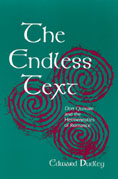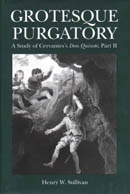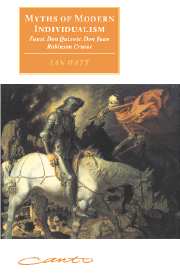
Publication Date: November 1999
Publisher: Purdue University Press
ISBN: 1-55753-204-4
Binding Format: Trade Paper; Edition: Reprint; Pages: 176 pp.; 6.34 x 9.44 x .97 in.; 1.52 lbs.
Price: $26.95
Trade Cloth;
Publ. Date: 1996
ISBN: 1-55753-078-5
Price: $33.95
"The novelas offer us a glimpse of Cervantes's Spain and include a cataloguing of the social, political, and historical problems of the time. Ricapito shows how Cervantes fictionalizes the problems of unpopular minorities like Gypsies and conversos; the difficulties of social mobility in a Christian setting; the presence in society of differing and even outlandish individuals; and the oppressive role of honor, which was popularized by Lope de Vega and later formed a leitmotiv of Spanish drama."
"In his analysis of Cervantes's creative response to history. Ricapito relates the novelas to the works of Lope de Vega and Mateo Aleman and shows how Cervantes brings to life many literary topoi and places them in a realistic, credible framework in which the historical presence is strongly felt."--BOOK JACKET. Title Summary field provided by Blackwell North America, Inc. All Rights Reserved (Blackwell)









